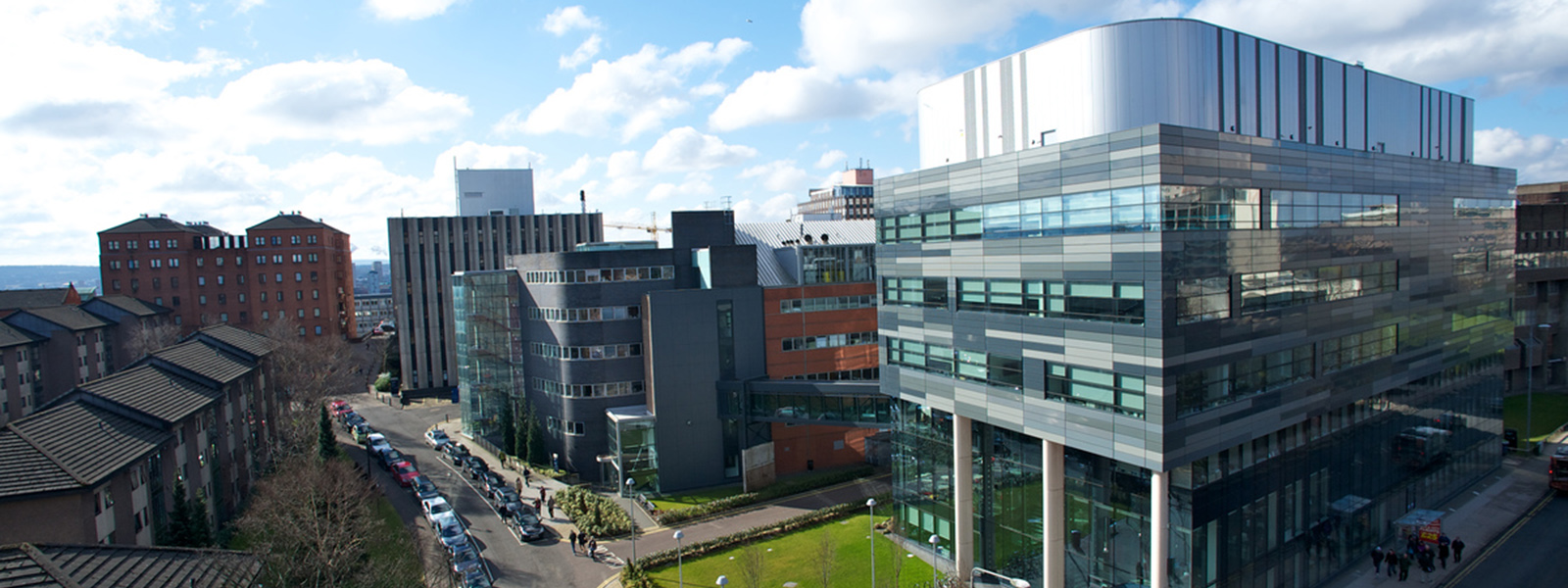
PhD@WorkDr Arthur Krebbers
Our PhD@Work programme offers working professionals the chance to carry out in-depth research on a topic directly related to their field, without stepping away from their careers.
Combining academic insight with real-world application, candidates work with both university and industry supervisors to develop original research that makes a real impact.
Dr Arthur Krebbers, who works at NatWest, turned a challenge from his professional environment into a research project, bridging the gap between theory and practice while advancing both his career and his field through the PhD@Work.

What motivated you and your employer to pursue the PhD@Work, and how did you align the research with your professional role?
My motivation for joining the PhD@Work programme stemmed from a desire to gain a deeper understanding of debt markets, a field central to my role as a bond originator at NatWest. I wanted to move beyond surface-level expertise and truly immerse myself in the subject, utilising academic research as a means to sharpen my thinking and add greater depth to my work.
The programme also offered a unique opportunity for personal growth. I was keen to learn how to conduct meaningful, high-quality research and apply that methodology to real-world financial challenges. Beyond technical development, I recognised that the credibility and subject authority gained from a PhD would enhance my ability to contribute publicly to conversations around debt capital markets, particularly through thought leadership and published commentary on behalf of NatWest.
When I first spoke with Professor Andy Marshall and Dr Patrick McColgan, it became clear that primary bond markets were surprisingly under-researched. That discovery cemented the decision, the research would not only benefit my own development and professional role but also fill a gap in academic literature. With direct access to market data and on-the-ground experience, I knew I could bring valuable insight to an area in need of deeper exploration.

How did the support from your employer influence your experience and success in the programme?
Support from my employer played a crucial role in making the PhD@Work experience manageable and successful.
One of the most significant contributions was the allocation of dedicated study time, approximately three weeks per year, which enabled me to travel to the University of Strathclyde for classes and in-depth sessions with my academic supervisors. Given the unpredictable nature of debt capital markets, where new fundraising activity can pick up rapidly depending on market conditions, this flexibility required strong backing not only from the wider organisation but also from my immediate colleagues, who stepped in to help cover active projects during my absences.
In addition to time support, NatWest contributed significantly by granting access to internal databases that collated relevant, publicly available bond market data. These datasets were already well-structured and familiar to me, which saved countless hours of data gathering and reduced research-related costs. Having access to this information made the research process far more efficient, allowing me to focus on analysis and insight, rather than on data collection. This kind of practical, hands-on support from my employer made a tangible difference to the quality and progress of the research
Can you share specific ways your PhD research has contributed to your organisation?
The impact of my PhD research has extended well beyond personal development, it has contributed directly to NatWest’s broader positioning and capabilities. For example, our recent IFR Award for ESG Insights cited the academic approach taken in our work, which was directly shaped by the research methods and analytical depth I developed during the PhD. It reinforced the bank’s expertise in both capital markets and sustainable finance.
The programme also enabled me to act as a bridge between the bank and the academic world. I regularly share relevant research and insights with colleagues, helping to bring fresh perspectives into ongoing projects and strategic thinking. This connection has proved valuable in keeping our approach informed and forward-looking.
Moreover, my collaboration with Strathclyde has showcased how NatWest supports learning at every level, from primary schools to higher education. It’s also served as a practical example to colleagues of what’s possible through the bank’s Learning and Personal Development programmes, underlining the flexibility and support available for those looking to pursue further education alongside their careers.
The programme also enabled me to act as a bridge between the bank and the academic world. I regularly share relevant research and insights with colleagues, helping to bring fresh perspectives into ongoing projects
There's now a more defined external-facing aspect to my role, where I actively contribute to the wider debate on the future of capital markets and sustainability, something that aligns closely with the bank’s public positioning and purpose.
What long-term benefits have you experienced in your career since completing the PhD, and how has it shaped your professional identity or leadership journey?
Completing the PhD has had a lasting impact on my career, particularly in how I position myself with clients and stakeholders. It’s given me a more well-rounded identity as a financial markets advisor, someone who understands both the practical realities of the industry and the theoretical frameworks that drive longer-term trends, especially in the area of sustainable finance.
This dual perspective has not only deepened the quality of my client interactions but also broadened the scope of my work. There's now a more defined external-facing aspect to my role, where I actively contribute to the wider debate on the future of capital markets and sustainability, something that aligns closely with the bank’s public positioning and purpose.
From a skills perspective, the ability to conduct rigorous research has enhanced my approach to complex client questions, particularly when they involve large datasets or require structured, analytical thinking. Overall, the experience has been transformative, shaping not just how I work but also how I lead and contribute within the organisation and across the industry.
What would you say to an employer considering supporting a staff member through the PhD@Work route?
For employers committed to offering meaningful and diverse learning opportunities, supporting a PhD through the PhD@Work route can be a powerful addition to their learning and development strategy. While it’s important to assess the relevance of each proposal, ensuring the employee can link their research to business priorities, a well-aligned PhD can turn a staff member into a true subject matter expert with long-term value to the organisation.
The financial costs are generally modest, as much of the investment comes in the form of the employee’s own time and dedication. Yet the returns can be significant, from enhanced expertise and external credibility to more analytical thinking within the business.
As a multi-year journey, it also offers a natural retention benefit. Supporting an employee through a PhD demonstrates trust and long-term commitment, which in turn helps foster loyalty and engagement from top talent.
PhD@Work
Want to learn more about the programme or explore your study options? Visit our Faculty-specific PhD@Work sections: